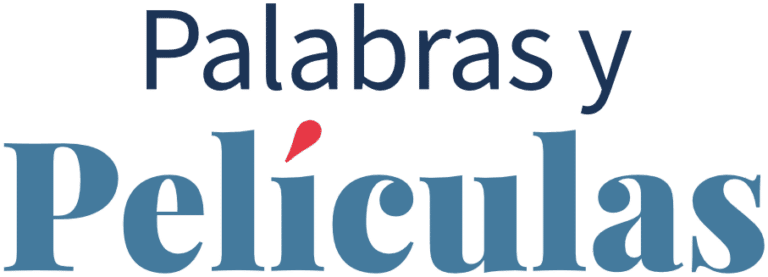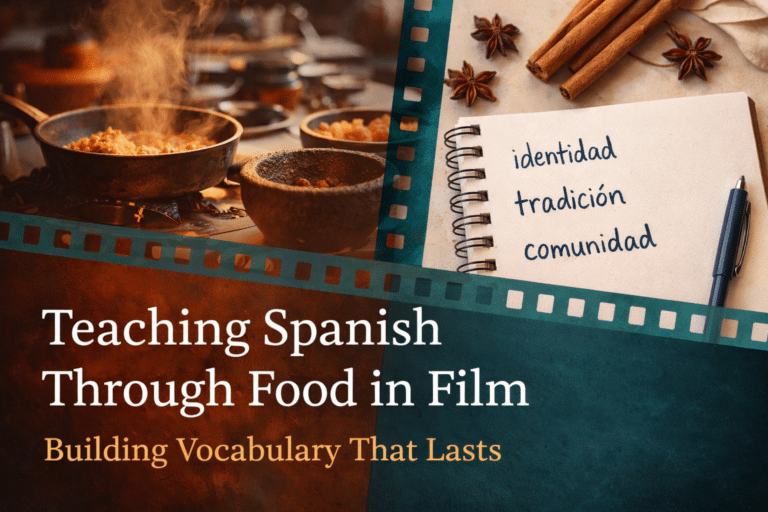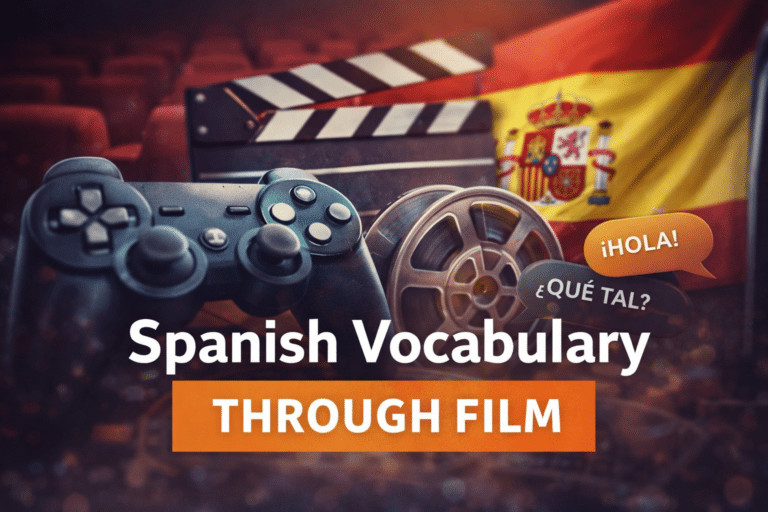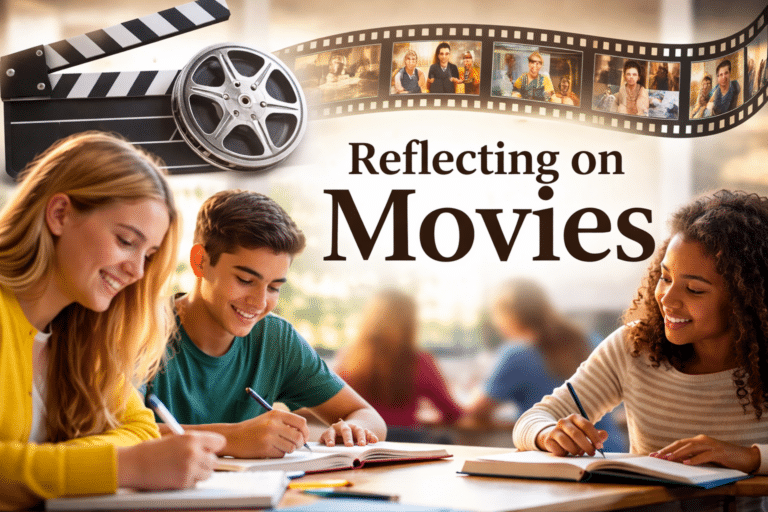There’s a particular kind of magic that happens in a Spanish classroom when language stops being a list of vocabulary words and becomes something a student actually uses.
That magic showed up in my classroom this week with Coco.
Our Spanish II vocabulary list included the phrase:
¿Puedes prestarme tu guitarra? — Can you lend me your guitar?
Later that day, I heard students generalizing the structure on their own — unprompted — and turning it into real communication:
- ¿Puedes prestarme un lápiz?
- ¿Puedes prestarme un bolígrafo?
Not fill-in-the-blank.
Not matching columns.
Actual conversation.
This is the thing.
This is exactly what film unlocks.
When students begin to use Spanish — not recite it
Film creates meaning first — and then the words find their way out naturally.
Another moment from the same class:
Two students were chatting before we pressed “play,” and one asked:
“Have you seen Coco before?”
“Sí,” the friend replied,
“…pero hace mucho tiempo.”
(…but a long time ago.)
Straight from the film.
Straight from authentic context.
Straight into usable language.
That sentence didn’t come from a textbook.
It came from story + emotion + memory.
Film learning accelerates fluency faster than drills ever could
I say this all the time, and this week confirmed it again:
No worksheet could have produced those spontaneous moments.
Not even the best speaking drill.
Film catapults language forward because students are emotionally involved — plot, music, color, culture, suspense, characters. And when meaning lands first, sentences become tools, not tasks.
This week I saw communication — not conjugation.
I saw real acquisition — not performance.
And I saw smiles — mine included.
If you’re a teacher reading this…
Please — give yourself permission to let film do some of the heavy lifting.
Not as “Friday fun.”
Not as a reward.
As methodology.
Film is not a break from real learning.
Film is one of the strongest engines of real learning.



